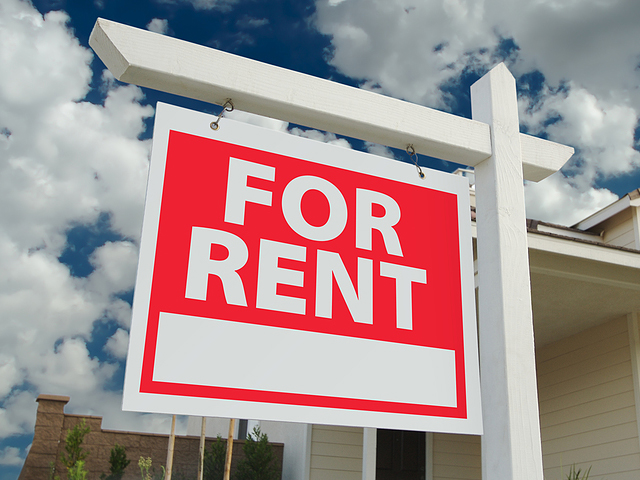
It is extremely exciting to leave the dorm or your home and move into your own apartment. Your first apartment gives you the chance to live without being supervised. It presents new challenges and responsibilities that arise with renting your own home.
Check out these 8 tips to help you enjoy your first significant move and help you be prepared.
1) Consider a Roommate Contract
To proactively prevent disputes, consider creating a roommate contract. This can be useful to outline when quiet time begins, if you will share groceries or cooking duties, rules for overnight friends, using common spaces and any other key factors that are important.
2) Select Roommates Wisely
Sometimes best friends don't make for great housemates, but other times it'll help strengthen your friendship.
While it can be tempting to move out with your best friend, this doesn't always work the way you hope it will. However, sometimes, it can help strengthen the bond within your friendship. It is important to visualize what it will look like to live with anyone before asking them to cohabitate. Signing a lease together means that you will both be responsible to get things done and share the financial commitment.
Look at sleep and work schedules. Consider if they like to party or get to work on time and if they will be reliable to split the rent with. Of course, these topics may initially be awkward to discuss; however, it is vital to get things out in the open from the start and dissect any potential issues ahead of time.
3) Read & Understand Your Lease Before Signing On the Dotted Line
Never sign any contract without reading it first and understanding it. The lease will outline important details including the amount of your security deposit, when rent is due, if utilities are included in the rent, how often guests can stay before the landlord needs to grant permission, if subletting the apartment is an option, if there is a non-refundable or refundable pet deposit, etc.
Any verbal agreements you determine with your landlord need to be put into writing and included in the lease prior to signing it. If you need extra clarification or don't understand any of the terms, be sure to ask and find out the details.
If you are renting with the university's housing department and don't understand a part of the lease, ask the department for clarification. Local government-run housing, consumer or rent protection agencies and non-profit tenant associations may be able to offer general advice.
4) Consider Reference Checks
If you are looking to share the rent with a stranger, asking for references is a wise idea. Speaking with a former roommate or landlord can help paint a picture of what kind of tenant they are.
Apartment issues can become prevalent if you have different cleaning and organization expectations. Issues may arise if you have different work schedules or study habits. It might be a good idea to minimize tension by sitting down together and creating a chore chart. By listing everyone's tasks for the next month or week, people will know what the expectations and timelines are.
Include things like cleaning up after pets, cleaning bathrooms, vacuuming, dishes, taking out the garbage, washing the floors, and even a laundry schedule. This can help everyone enjoy a clean and relaxing environment. No one wants to spend their days off doing hours of chores only to come home to another giant mess.
5) Never Sign a Lease without walking through the location first
One of the biggest issues about not conducting a thorough walk-through with your landlord prior to signing the lease is that you may end up liable for someone else's damage. You don't want to be stuck footing the bill for damage you didn't cause. Schedule a time to meet the landlord at the property and do a walk-through together. The landlord should list any previous damage on the lease and take photos. You can also take your own photos for future reference.
6) Invest In Renters' Insurance
Renter's insurance may seem like an unnecessary extra expense; however, it will be invaluable if your items are destroyed, damaged, or stolen. At only around twenty dollars a month, this policy can save you big time in the event of any break-ins, fire, or flood damage. Note that renter’s insurance typically only covers one person on the contract. Therefore, don't think you are all good if your roommate has a policy...you will need to pay for your own.
Some landlords make rental insurance a part of their contract. In certain cases, you may be eligible to share a policy with your roommate if you can put both names on the contract and can split the payment. Insurance options vary depending on where you live. The best advice is to speak with an insurance agent to find out all your options.
Read your rental insurance policy very carefully. Coverage may include theft off-premises which would relate to carrying a cell phone, laptop, or other electronics around. If you don't have many valuables, consider that rental insurance additionally covers medical expenses and legal fees if a guest gets injured while they are at your place.
7) Understand the Landlord's Responsibilities and Know Your Tenant Rights
As a renter, you have numerous responsibilities to hold up your end of the bargain. You need to ensure the property isn't damaged or destroyed. You must keep everything sanitary and take out the trash on time. Landlords additionally have their own responsibilities. If you understand the law, you can hold them accountable.
Your landlord needs to ensure that electricity, gas and plumbing are running properly and safely at all times. If you reside in a complex, railings and stairwells and walkways need to be clean and sturdy and common areas need to be clean. The law also states how much the landlord can increase your rent and how often.
Depending on where you reside, laws vary greatly. Check out the HUD or U.S. Department of Housing and Development. This has links to a variety of resources for every state that can be helpful. It includes links to free legal assistance locations and overviews of tenants’ rights. If you want specific information, investigate your county's or city's housing section on government websites.
8) Don’t Rush and do your homework before signing a lease
Moving out into your first place is an exciting endeavor that can be lots of fun. It is a big step to secure your first apartment. Pick your roommates carefully and understand all aspects of your lease to enjoy the best experience. It is essential to be an informed tenant and make the best choices to ensure that living off-campus is a rewarding experience. You want to be able to focus on your classes and not be stressed out with lousy roommates or nosy landlords.











